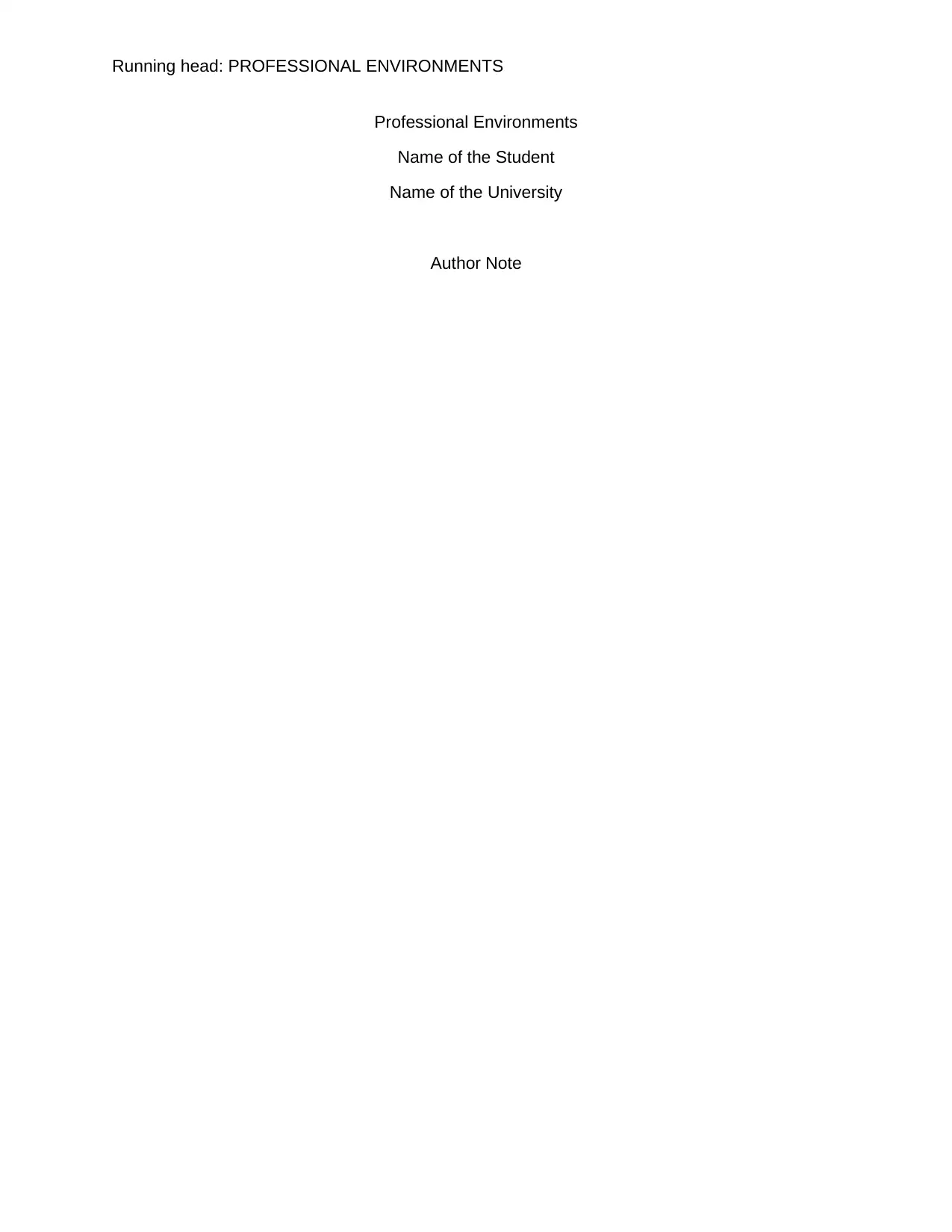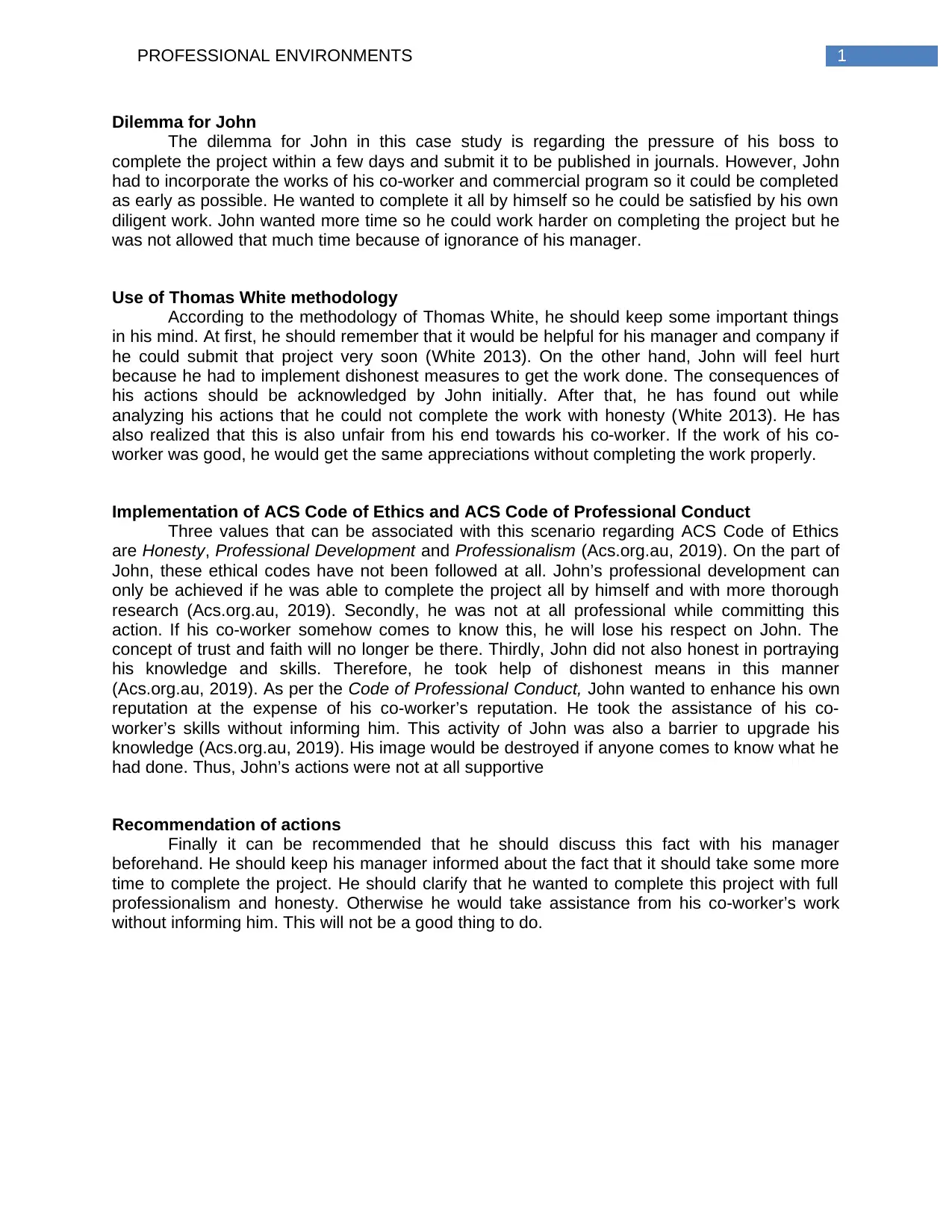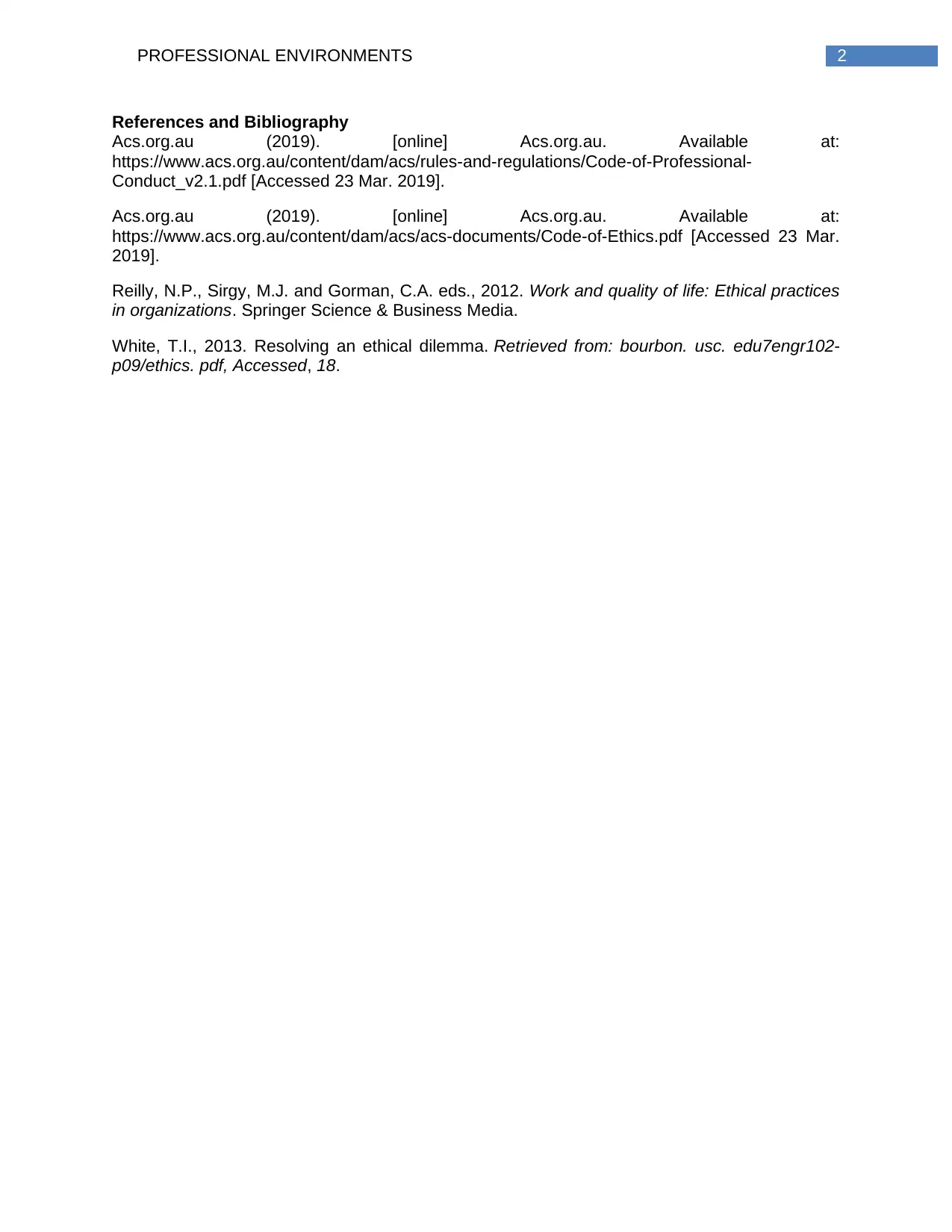Professional Environments: Case Study Analysis on John's Dilemma
VerifiedAdded on 2023/04/12
|3
|594
|205
Case Study
AI Summary
This case study analyzes John's dilemma, a statistical database programmer facing pressure to complete a project quickly. John struggles with incorporating code from a co-worker and commercial software to meet the deadline, leading to ethical conflicts. The analysis applies Thomas White's methodology and the ACS Code of Ethics and Professional Conduct, highlighting issues of honesty, professional development, and professionalism. The document recommends that John discuss the situation with his manager and seek more time to complete the project ethically. The case study emphasizes the importance of integrity, acknowledging others' work, and upholding professional standards in software development and workplace environments.
1 out of 3









![[object Object]](/_next/static/media/star-bottom.7253800d.svg)